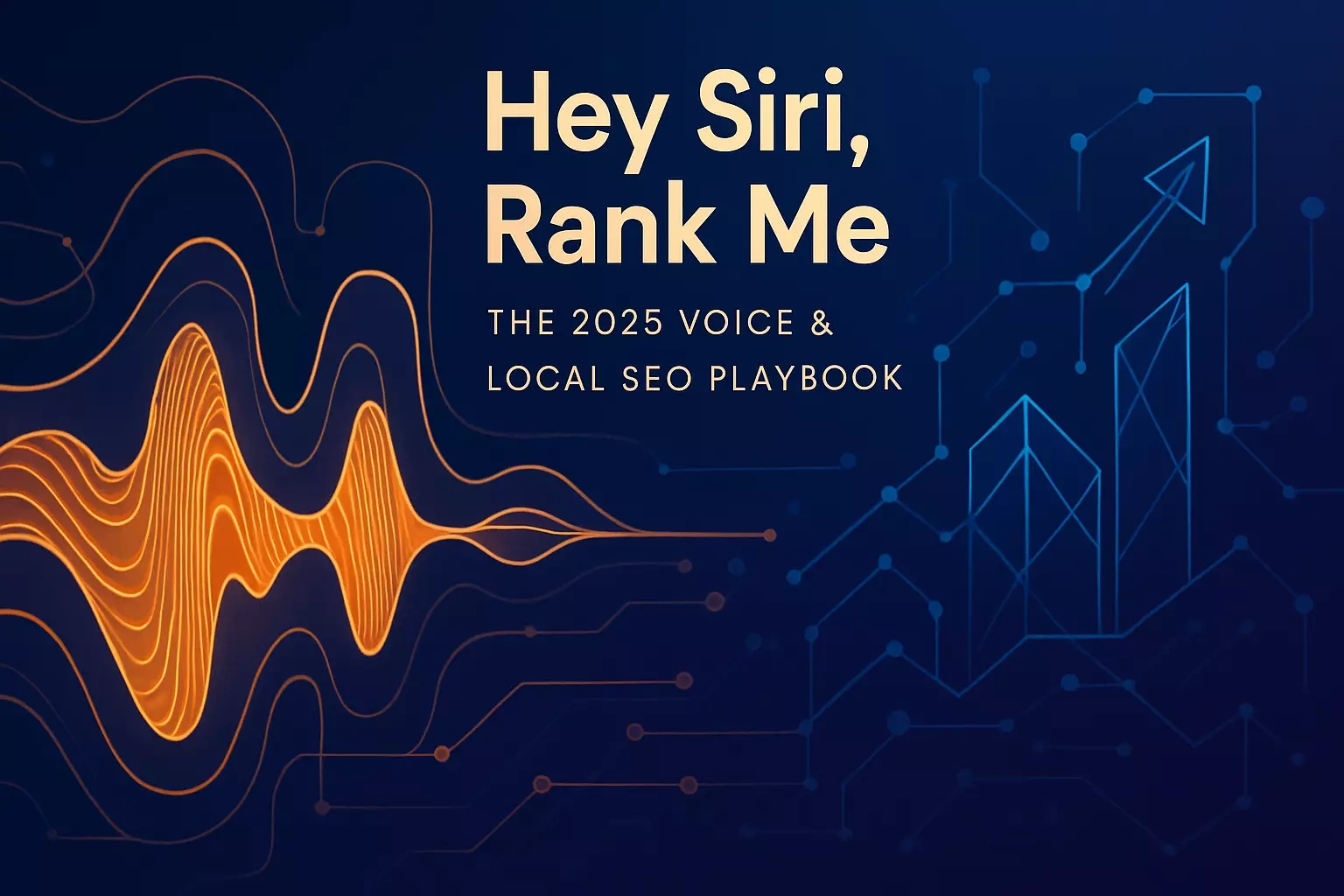Hey Siri, Rank Me: The 2025 Voice & Local SEO Playbook

Hey Siri, Rank Me: The 2025 Voice & Local SEO Playbook
The Voice Search Revolution: Why It Matters in 2025
Understanding Conversational Queries
The Goal: Become the One True Answer
The Voice SEO Playbook: Optimizing for Spoken Queries
Play 1: Target Long-Tail, Question-Based Keywords
Play 2: Structure Content for Snippets
Play 3: Implement 'Speakable' Schema Markup
The Local SEO Playbook: Winning 'Near Me' Searches
Play 4: Master Your Google Business Profile
Play 5: Build Local Authority with Citations and Reviews
Play 6: Create Hyper-Local Content
Conclusion
References
Hey Siri, Rank Me: The 2025 Voice & Local SEO Playbook
The Voice Search Revolution: Why It Matters in 2025
Understanding Conversational Queries
The Goal: Become the One True Answer
The Voice SEO Playbook: Optimizing for Spoken Queries
Play 1: Target Long-Tail, Question-Based Keywords
Play 2: Structure Content for Snippets
Play 3: Implement 'Speakable' Schema Markup
The Local SEO Playbook: Winning 'Near Me' Searches
Play 4: Master Your Google Business Profile
Play 5: Build Local Authority with Citations and Reviews
Play 6: Create Hyper-Local Content
Conclusion
References
Posted Jun 19, 2025
Voice search is no longer a novelty. This 2025 playbook gives freelance SEOs the essential strategies for optimizing for voice assistants and dominating local 'near me' searches.







